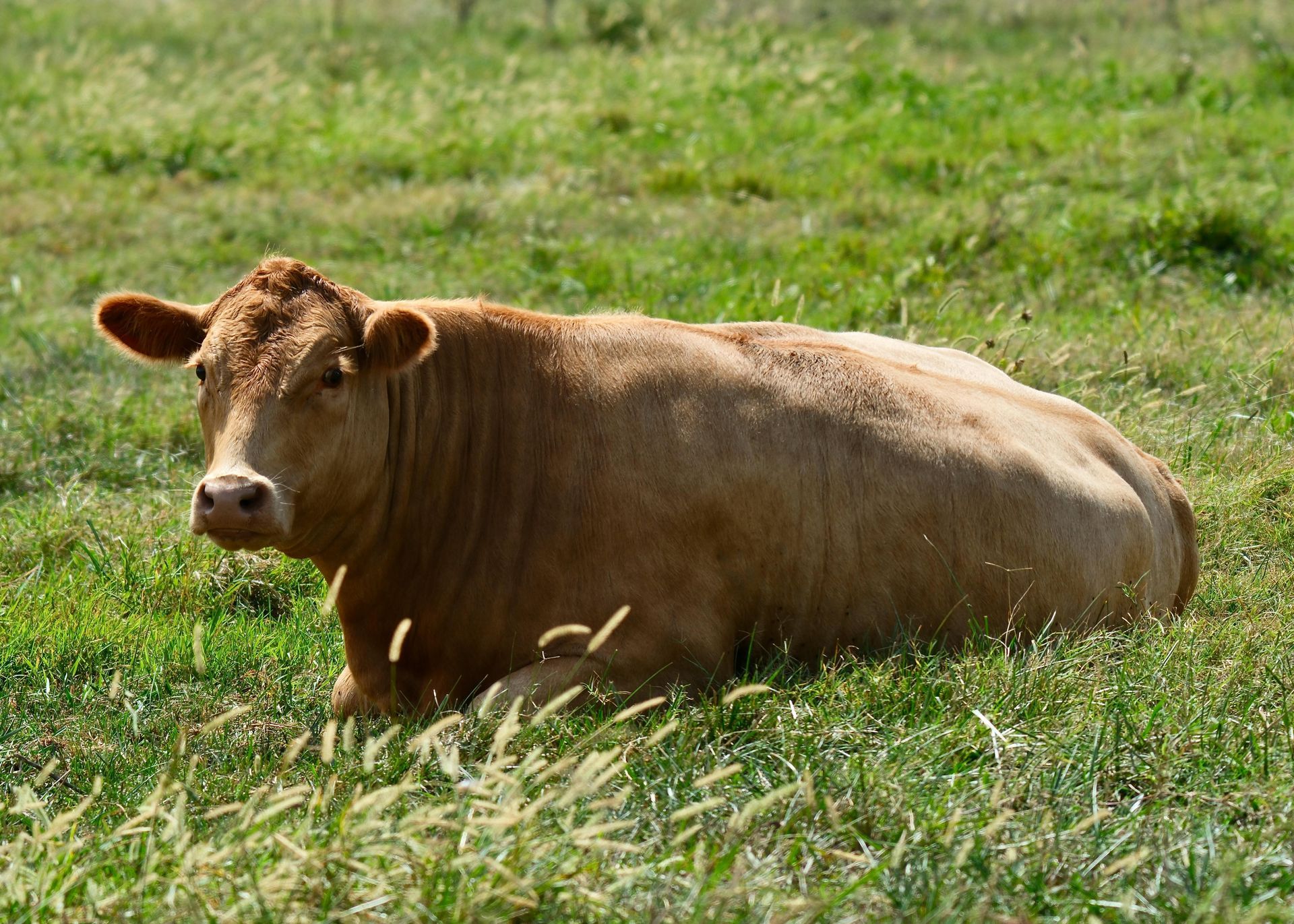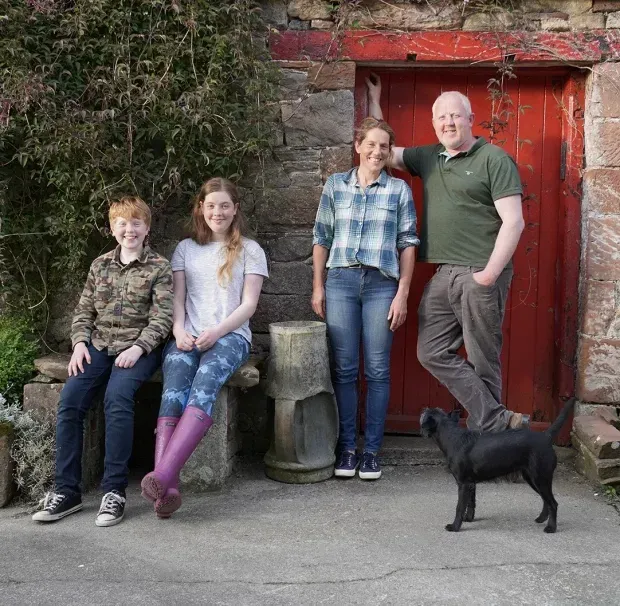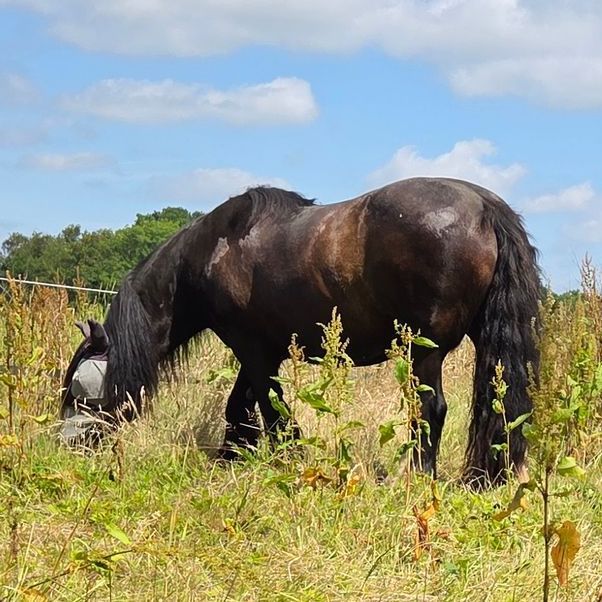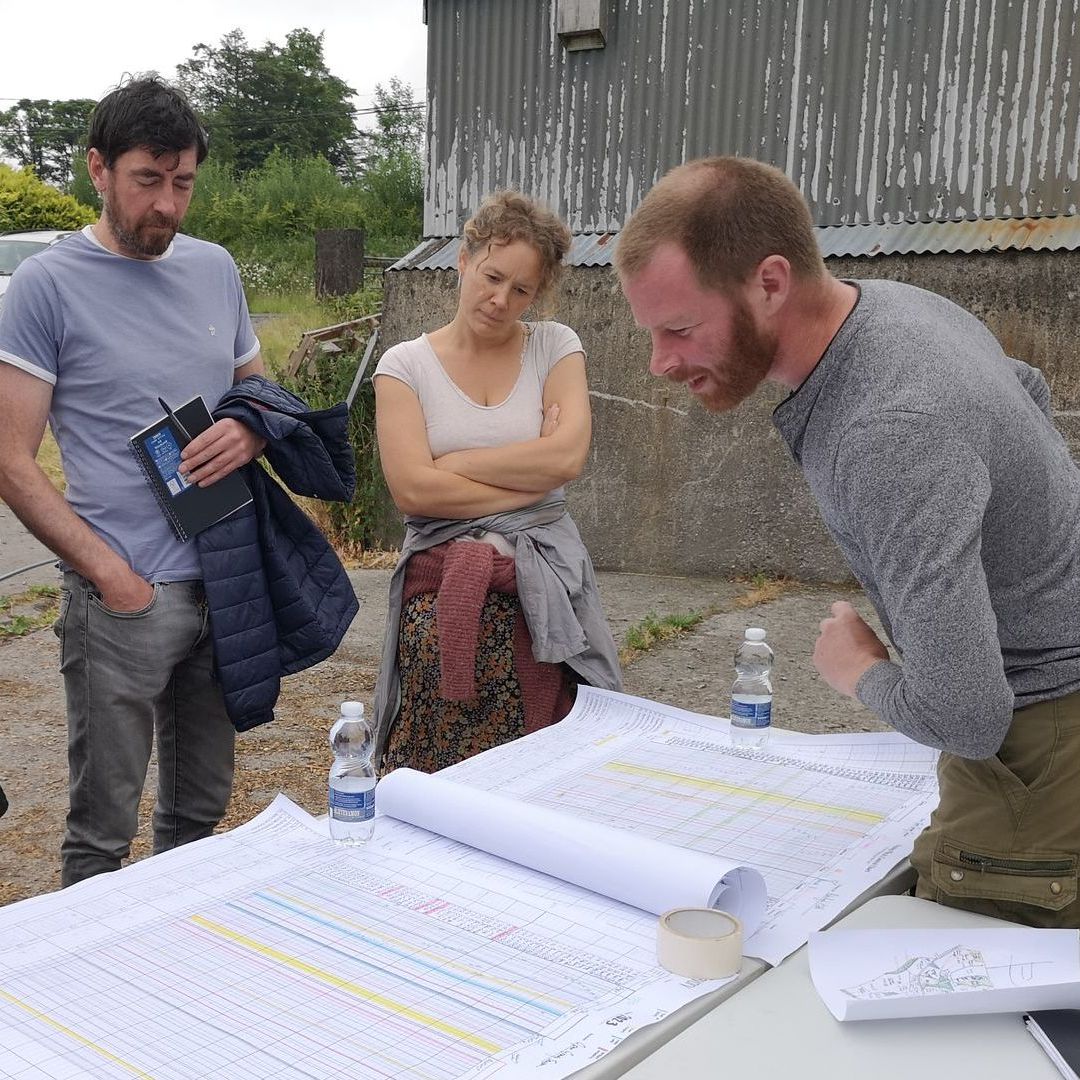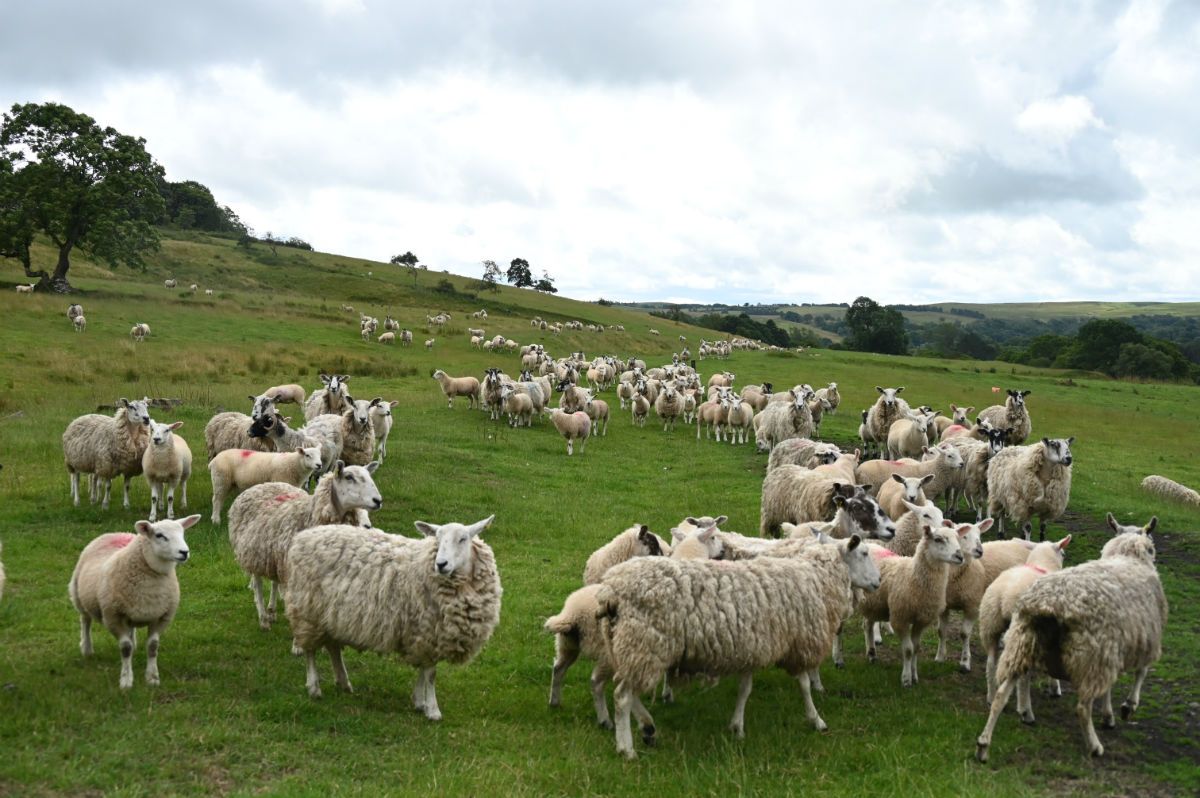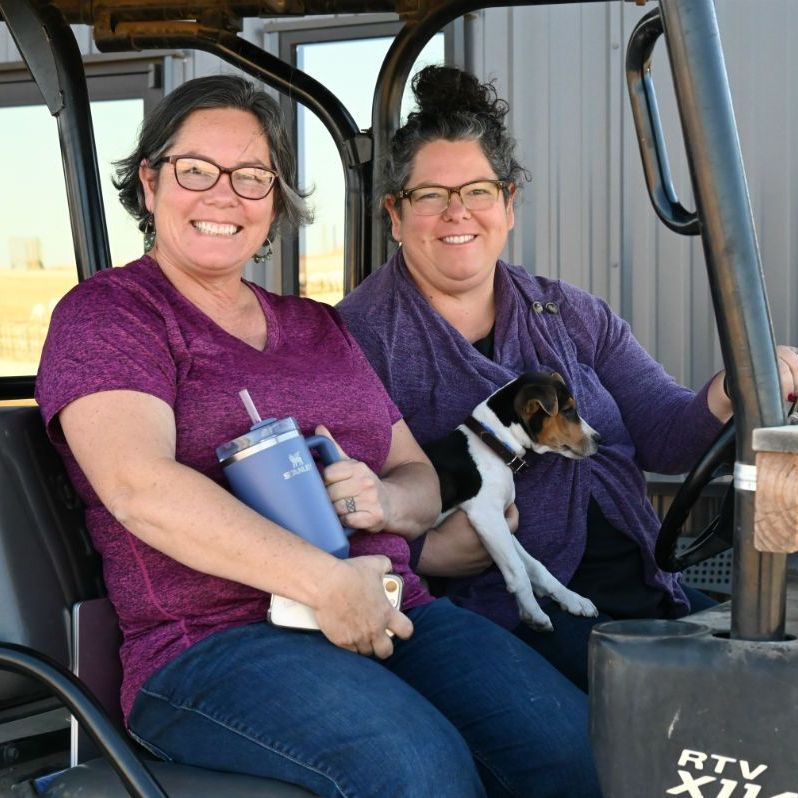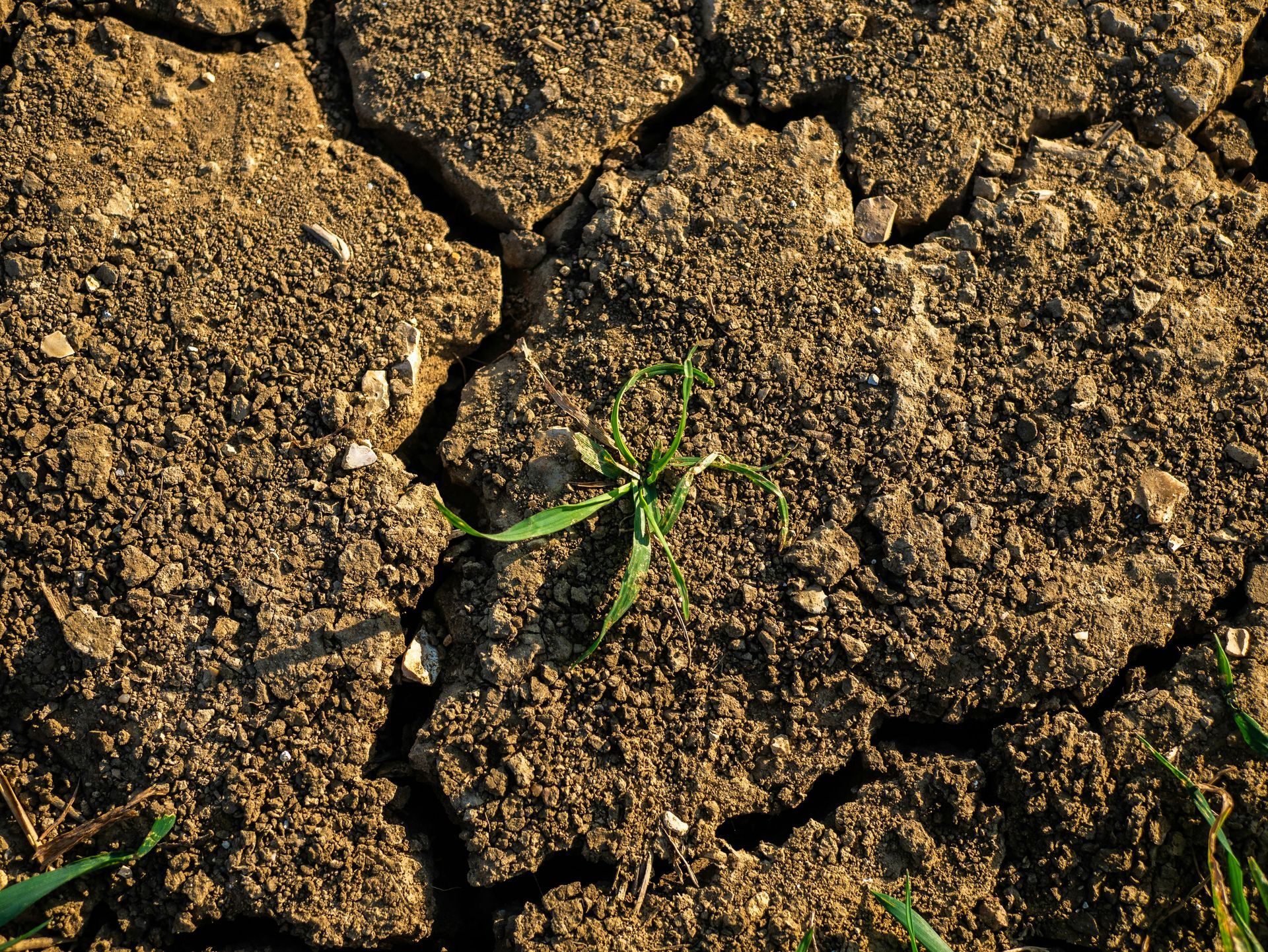Climate Change is an Invitation to Change
We need to find a way to have pleasure to make this change.
Why would French chef, Vincent Pereyre (alias Alberto Lepep) study Holistic Management? Because he believes:
“Climate change is an invitation to change our way to make decisions, to take action, and I want to be part of this change. We need to find a way to have pleasure to make this change.”
What a refreshing perspective. Vincent tells the story of how he came to think this way.
Sheila: When did you first hear about Holistic Management?
Vincent: I participated in the very first online Permaculture Design Certificate with Geoff Lawton. This led me to discover the work of Allan Savory before the TED Talk [which has 4.5 million views]. I read three articles about Holistic Management on Australian website Permaculture News by Dan Palmer. I read them, then I made some mind maps. Then, I wrote down all the questions to define my Holistic Context.
In October 2014, I was one of the first students to enrol in the online courses with Savory Institute. Two years later, I went to Penrith and met you and your husband for the 8-day Holistic Management course. In March this year, I did my exit interview with Nicholas Sharpe, and now I am a Savory Institute Accredited Professional.
Sheila: You are a pioneer.
Vincent: In France I think so! In France, I struggle, because Holistic Management is not known, and the book, Holistic Management, Third Edition: A Commonsense Revolution to Restore Our Environment , is not produced in French, which is part of the Logjam in France.
I learned from the Savory Institute conferences too. I saw Tony Malmberg speak about complexity and context, and it was very helpful for me. In the same way, there is a farmer in North Dakota called Gabe Brown. He is a cover crop specialist in the USA. In my opinion, a lot of his work is influenced by Allan Savory.
Sheila: Why did you decide to study Holistic Management?
Vincent: I have been a cook for five or six years. I had spent 15 years working for a newspaper, Les Petites Annonces , making advertising as a designer. The enterprise got into financial trouble and they asked me if we wanted to leave, and I said yes. So, I went to cooking school, and at the same time I decided to learn holistic management.
I was lucky because my wife has a small beauty business based in Biarritz. We used the Holistic Management Framework for her business. We defined the Whole Under Management and it was quite complicated, and we saw clearly some people have veto power on it for example. We used the Holistic Financial Planning approach, and we determined the Weak Link, Logjam, Adverse Factors, Gross Profit Analysis. It helped us make the business work better. We tried to make the job less tiring with more profit. She is 52 now (same as me), so she had to be a bit calmer in her work, and we tried to shift things with the Holistic Management Framework. I learned a lot about Holistic Management through this exercise, even though it’s not a farm or a ranch.
Sheila: What were the outcomes for your wife’s business?
Vincent: There are four enterprises in one. Marketing was always the Weak Link (low prices, no marketing strategies). We tried to make the marketing more effective. Her business improved because she spent less time at work, profit became more important, and she gained more clients.
Facial massage is one enterprise, quite seasonal, like calving. In skills she’s okay [Resource Conversion]. With regards to the massage product itself, clients are very happy [Product Conversion]. In Marketing Conversion she was afraid to sell and to bother people; that was the Weak Link, and the Logjam for the whole business.
And now the Logjam is quite gone. Because she worked with the books of an American called, Byron Katie. It helps when you have big beliefs in your mind, to see the opposite of the belief. A friend told us about her. You just have to work with four questions. With these four questions, you change your mind. In her case, she was afraid of selling massage. For her it was very complicated to sell massage. After she did the questions, she found it very easy to sell massage. Astonishing!
Sheila: What happened to profit?
Vincent: Profit is about 25% more, and she is less tired now — that is very important. She used to be very tired, because she goes to the customer and to two different shops. She used to start at 9 am and finished at 7 pm or later. Now, she starts work at 9:30 or 10 am, and comes home at around 4 or 5 pm. She used to work 5 days a week. Now she works 3.5 or 4 days a week. Reducing the time outside was very important in our Holistic Context. It is more effective. She is less tired, and she is very interested in Holistic Management too. Through the Gross Profit Analysis, we found her expenses were quite low in the business, compared to agriculture of course, so that’s why marketing was quite important, because the more she sold the services, the more she won.
Sheila: What impact did it have for your family life?
Vincent: Holidays are planned on the chart for the year. Brigitte used to have 3 weeks of holidays a year. Last year, in 2017, she had 7 weeks of holidays. In this holidays planning process, we consider weekly turnover, need for rest, and saving money for those weeks. In winter, for example, we know that the last week of the month of January, February, and March are very low in terms of turnover. And on the other hand, she has a very important seasonal activity from the 15th of July, to the end of September and needs to have rest. And as the holidays period is longer, she perfected a system to save money for the next holidays.
Sheila: What do you see as the future for yourself?
Vincent: I am very happy to be accredited now. I hope to make courses like you. My dream is to get some cattle or sheep in a place to work with people. I would like to be involved in a farm where we can apply the Holistic Management Framework. Since Penrith, I didn’t find a person in France to do this. Because I was too new in the job. I don’t know. There was one young farmer who was open-minded, but it didn’t work out because I didn’t present him Holistic Management with good words. I didn’t sell him very well.
Sheila: What is your Statement of Purpose?
Vincent: Je suis en vie, je favorise la vie! I am alive, I promote or favour life!
Sheila: Why is Holistic Management important to you?
Vincent: It addresses complexity. It’s very important because usually, people ask you, “What to do? What decision will you take?” In agriculture, in the no-till movement in France for example, the people think they will solve their problem with a new technique. In Holistic Management, we admit, it is complex, and we know we have to change our mind to address complexity. We can’t think in the old way. When you manage holistically, you are never right. The feedback loop is very important.
The Feedback Loop enables the decision-maker to take controlling action at the first sign things are moving in the wrong direction.
The philosopher Socrates said, “tout ce que je sais, c’est que je sais rien”. (“All I know is that I know nothing.”) Perhaps in another life, Allan Savory met Socrates! We need to monitor and control all the time in order to stay on track. My track is, “I am alive. I promote or favour life.” and I have to monitor that all the time.
In the new book, Holistic Management, Third Edition: A Commonsense Revolution to Restore Our Environment , there is the question, “what do you want to impact in your life?” That is a very important question for me.
Sheila: What do you want to impact?
Vincent: Life. The environmental minister in France spoke recently about biodiversity [see, ’Catastrophe’ as France’s bird population collapses due to pesticides. ] The bird population is getting lower and lower. I would like to improve life; to favour life is to make the bird population go higher, not go down. Usually we speak about protecting the environment. I don’t want to protect the environment; I want to enhance it for every living organism on the planet.
Sheila: What do you see for the future?
Vincent: On page 172, in the book, Holistic Management, Third Edition: A Commonsense Revolution to Restore Our Environment , Allan Savory wrote, “I had a good system for managing my time.” Personally, I don’t manage well my time, it is probably my logjam and at the same time, I am really lucky, because I have his email address, so I asked him how he did it. He gave me the technique and I try to do it now. With this new organisation in my life, I hope to optimize and to go further in my holistic context.
Climate change is an invitation to change our way to make decisions, to take action, and I want to be part of this change. We need to find a way to have pleasure to make this change. It is difficult, because it is not a problem of change, it is a problem of the brain. How our brain functions, does not help us to change.
In one of his conferences, Gabe Brown spoke about his father’s traditional beliefs about soil disturbance. What I think was the most difficult for him, was to move away from his father’s beliefs, not technically to go “no till”. “I was not a pleasant man to be around”, he said in this period of change. I think, it is very similar for me, when I have to change, I am not a pleasant man to be around.
Sheila: What would you like to add in closing?
Vincent: We need more articles like the case study you wrote, Less Stress, More Grass by Managing Holistically, which speaks about Weak Link, and Logjam, etc. It’s important to speak about Holistic Management in this way, to concentrate more on the framework. Usually, it’s a very nice story about cattle and profit, but I prefer to see more practical examples, or case studies about Holistic Management that are concrete.
